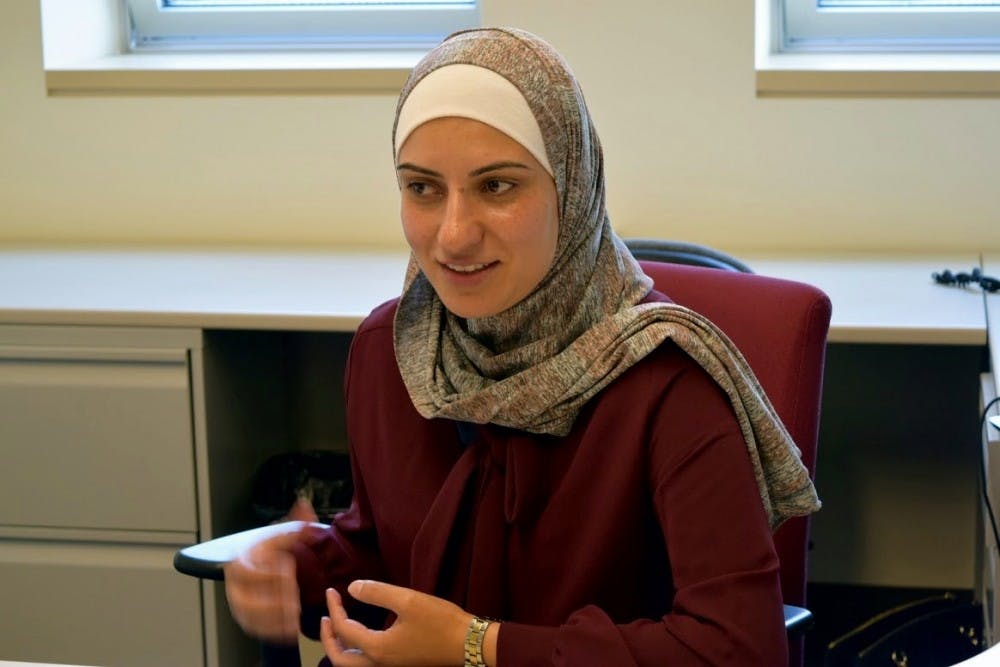Men far outnumber women in the fields of science, technology, engineering and mathematics (STEM). According to Sharon Jones, the dean of the School of Engineering, there are far fewer female students than male students in the engineering department, with women making up about 26 percent of the department last year.
Several studies have shown contributing factors such as gender bias, workplace exclusion and stereotypical notions about women lead to the underrepresentation of women in the field. But some studies show that the workplace is gradually changing.
The University is making strides in increasing female presence within the discipline. Including Jones, thirty-three percent of the engineering faculty are now women.
This year, The Bluff welcomes six new engineering faculty members, five of whom are female and two of whom are women of color. They are Rajaa Alqudah, Christina Ivler, Nazanin Mansouri, Jennifer Symons, Kathleen Bieryla and Benjamin Tribelhorn.
Rajaa Alqudah, Assistant Professor of Electrical and Computer Science
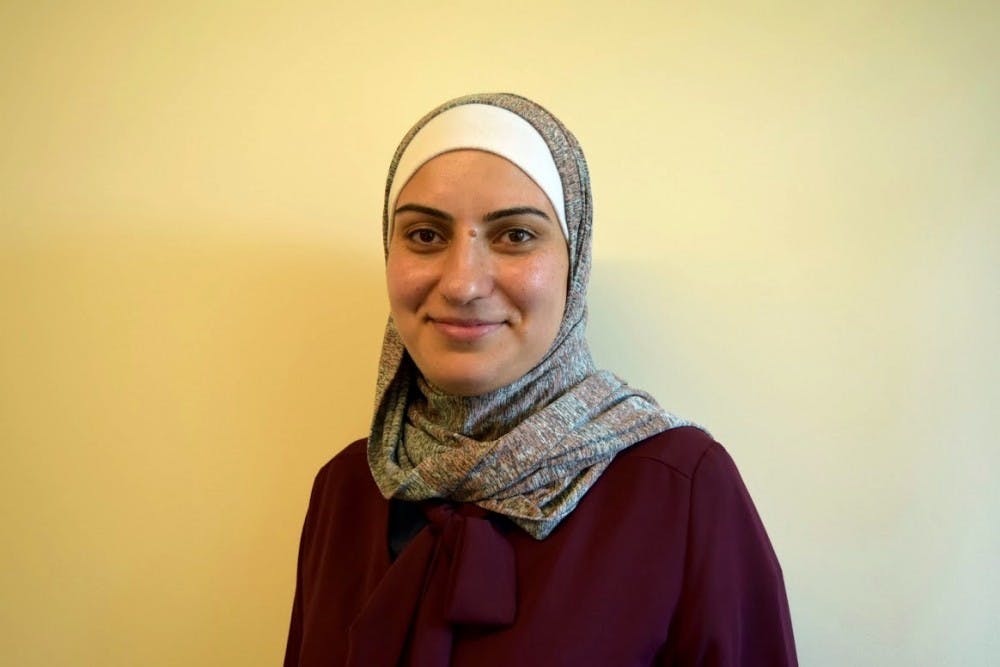
Rajaa Alqudah migrated to the United States from Jordan after receiving her bachelor's degree from Yarmouk University. She obtained her master’s degree at Northeastern University in Boston, and received her doctorate in computer engineering at Syracuse University.
Growing up, Alqudah was always fascinated with computers. She has found that computer engineering is an outlet for her interests and passions. She worked as a software engineer at Intel Corporation, and the research she has done throughout her career encompasses validation and designs including architecture and computer designs, algorithms and software programming.
Alqudah embraces being a woman of color in a male-dominated field, and hopes for more diversity in engineering. When she was a student, she would find herself the only female in a classroom and often times feel alone. However, she said she believes that the industry is changing, and more women are starting to get involved.
“I feel like there are a lot more women in classrooms and in the industry compared to before,” Alqudah said. “Now, there’s more understanding about how women can do whatever men can, and even better at times.”
Although Alqudah has been in the United States for 12 years, she said she often feels uncomfortable as a woman of color. Although she said she encounters false perceptions and threats, she uses it as a motivation to move forward and advance her engineering pursuits.
“You can’t judge people based on a certain group’s behavior or perception,” Alqudah said. “With my background and culture, I am encouraged to live every day and show the world that I am capable of doing stuff and that (Muslims) are normal people, too.”
For the short time she’s been on The Bluff so far, Alqudah said that being a Muslim in a Catholic university did not make her feel any different. So far, she said she feels comfortable and welcomed on campus.
Alqudah said that her goal is to be a successful engineer and a role model for young women who are hoping to pursue a career in the field. She encourages students to work hard and focus on their studies, because “they have a bright future ahead of them.”
Christy Ivler, Assistant Professor of Mechanical Engineering
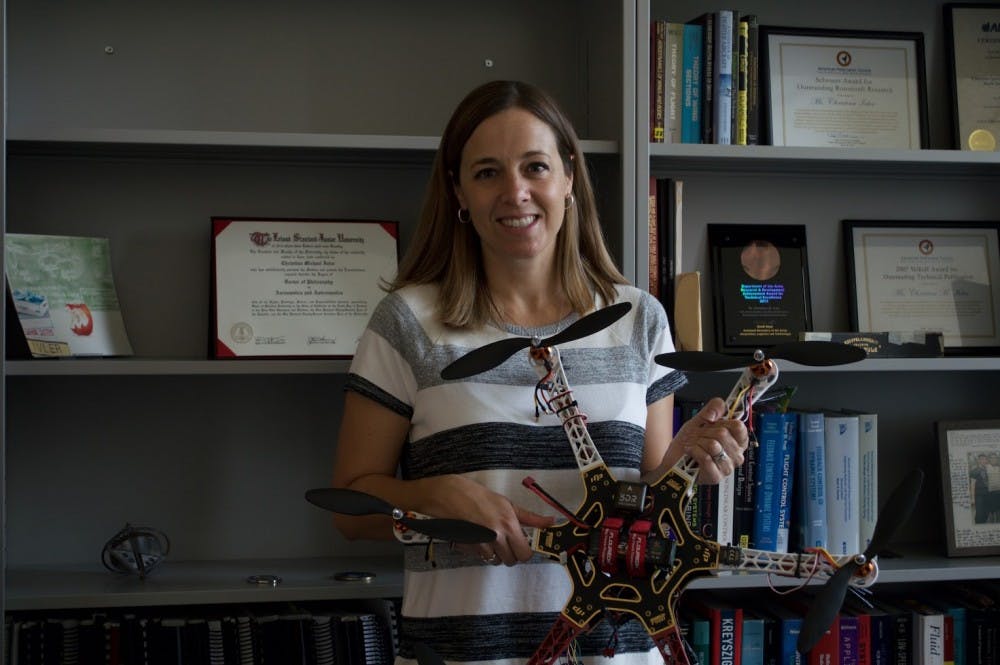
Christy Ivler spent twelve years doing research on helicopter flight dynamics for the United States Army Aviation Development Directorate, as a research aerospace engineer, developing new autopilots for army helicopters.
Ivler received her bachelor’s and master’s degrees at University of California, Davis. During her 12 years with the U.S. Army, she was sent to Stanford to receive her doctorate degree. She worked full time in the Army lab at NASA Ames Research Center in Mountain View, Calif., often coming and going between classes. She was also an adjunct professor at Santa Clara University for four years while working for the Army, but eventually wanted to become a full-time professor.
Coming from a larger institution, Ivler is transitioning most of her research to a smaller scale, using a hexacopter — a drone with six propellers allowing for better stability, speed and mobility. Her goal is to develop technologies and create autopilots that are safe and responsive to failures.
Ivler said she chose University of Portland because she was drawn in by the great student-faculty connection and their value for good teaching. She said admires the university’s atmosphere and the city’s sense of community. Outside of her work and research, Ivler enjoys taking her toddler son to parks, libraries, museums and the zoo. She is an avid swimmer, and loves to snowboard during wintertime.
As a woman in engineering, Ivler said she feels delighted whenever more women are involved.
“People noticed and remembered me, because I was different from the rest of the crowd, and they remember your failures and successes,” Ivler said.
Nazanin Mansouri, Assistant Professor of Electrical and Computer Engineering
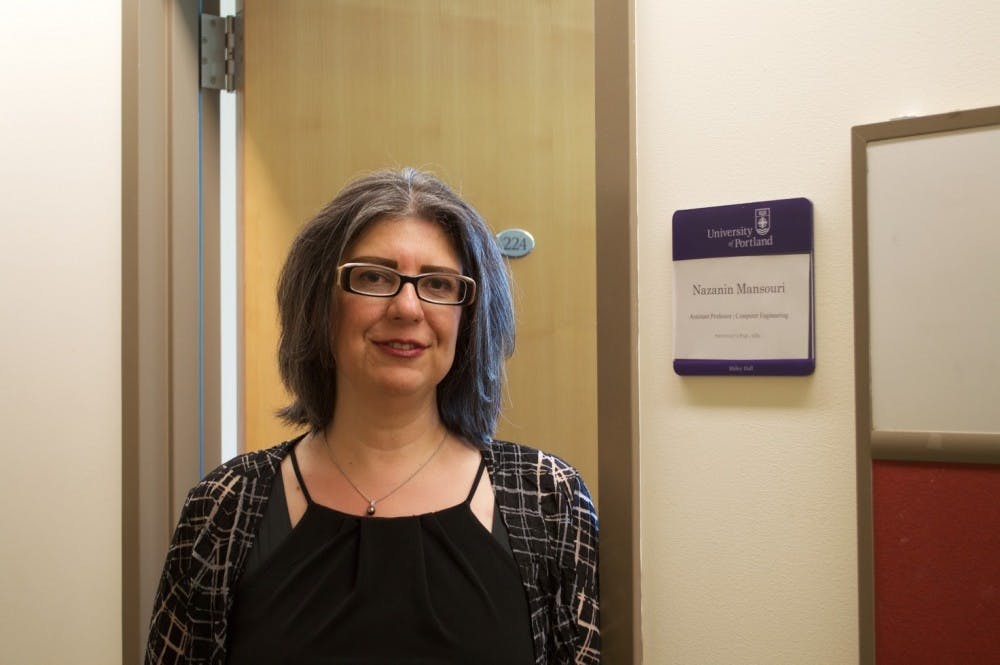
Prior to coming to University of Portland, Nazanin Mansouri received her bachelor’s degree in electrical engineering with a focus in computer hardware from Iran University of Science and Technology, and her doctorate degree in computer engineering from the University of Cincinnati. After, Mansouri taught at Syracuse University, and then worked at Intel Corporation as an associate design engineer.
Mansouri migrated to the United States from Iran. Growing up in what Mansouri describes as “a patriarchal society and a religious government,” she was motivated to enter the engineering field. Nonetheless, it was still difficult for women to break into science and math disciplines at the time.
“In the beginning of the (Iranian) revolution, I remember hearing in the radio that the capacity of a woman’s brain is not the same as the capacity of man’s brain,” Mansouri said. “I was very good at math, so it became my mission to prove them wrong.”
At Syracuse University, Mansouri worked closely with the Society of Black Engineers, and said she is passionate about diversity in the engineering field.
She is interested in the area of power management and power optimization. She speaks Farsi and English, and is interested in linguistics, music, ballet, musicals, cinema and concerts.
Jennifer Symons, Assistant Professor of Mechanical and Biomedical Engineering
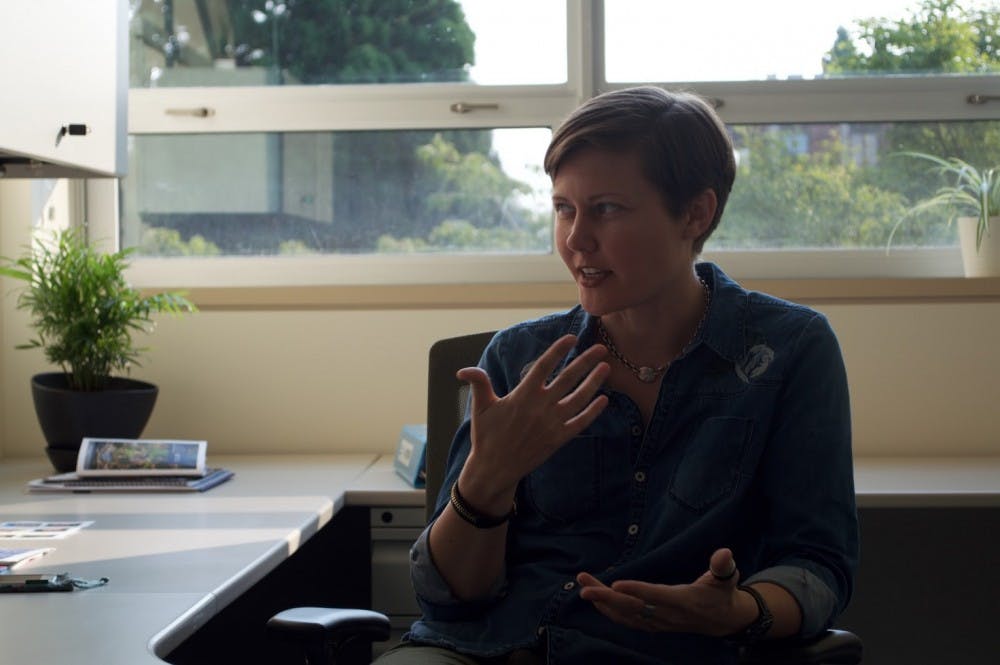
Jennifer Symons, originally from San Diego, obtained her bachelor’s, master’s and doctorate degrees at University of California, Davis. She specializes in biomechanics, specifically musculoskeletal injury and noninvasive mechanisms preventing such injuries or enhancing performance.
Although Symons was just hired full-time at the beginning of this school year, she may look familiar — she has been on The Bluff for the past year as an adjunct professor.
“At the time I was an adjunct here, I think it changed my perspective on what teaching was, especially coming from a big public institution,” Symons said. “When I came here, I was able to actually get to know my students and think about tailoring the discussion of the content of the class to promote dialogue.”
While pursuing her graduate degree, Symons was involved with outreach efforts at UC Davis to promote STEM for young girls. Although she acknowledges that STEM is not for everyone, she said she believes that everyone should have an option to pursue it if they want. According to Symons, students need to essentially be open to new opportunities, new people and new applications of their skills.
When she’s not working or doing research, Symons spends most of her time riding her horse, Graham. She considers it a “part-time job”. She also particularly enjoys Portland’s famous food carts.
Kathleen Bieryla, Assistant Professor of Mechanical and Biomedical Engineering
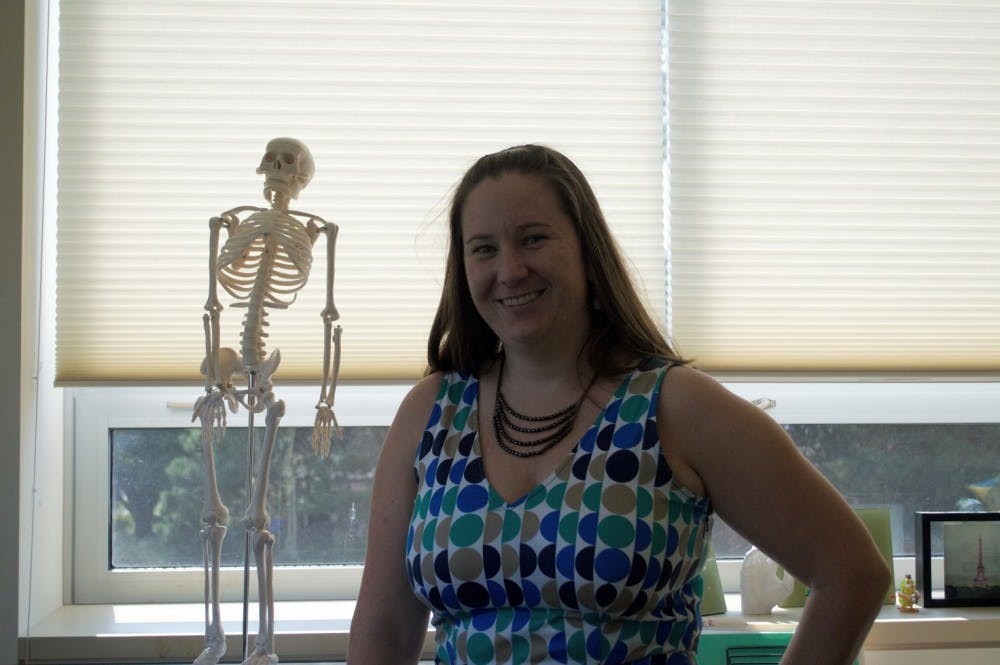
Kathleen Bieryla, a Pennsylvania native, received her bachelor’s degree in bioengineering from the University of Pittsburgh, and earned her master’s and doctorate degrees in mechanical engineering from Virginia Tech. Prior coming to University of Portland, she was a faculty member of the bioengineering department at Bucknell University in Pennsylvania for eight years.
As a first-timer on the West Coast, Bieryla wishes to travel and explore new places during her free time. During the two months she has been in Portland, she has explored the coast, downtown and the historic highway to Mt. Hood.
Last year, Bieryla and three other Bucknell faculty members took a group of 33 students to Chile for three weeks, where they taught engineering courses to college students. They traveled all of Chile from North to South, visited different colleges and got guest speakers talking about engineering in a global and societal context in Chile.
Although she loves research, Bieryla enjoys being in a classroom where she can interact with students. She encourages students to take advantage of office hours and not fall behind in their classes.
“Once you start to fall behind, it’s hard to dig yourself out of the hole,” Bieryla said. “So try not to fall behind and talk to your professors, because we aren’t scary.”
Bieryla’s undergraduate research focused on full body biomechanics, and observed “slipping older adults and how they react when they are exposed to a slippery surface.” Along with her transition to graduate school, she furthered her research on “tripping older adults” with the goal of preventing falls. Most recently, her research focuses on collegiate hockey players examining fitness measures, biomechanics and physiology metrics.
Bieryla had an unusual undergraduate classroom experience, where there was a strong female presence in the class. She never felt out of place until a mechanical engineering graduate class where she looked around the classroom and found that she was the only woman.
“As a professor, I do have to watch out for that,” Bieryla said. “Because I want to have a more comfortable and inclusive teaching environment, and make sure that the quiet kids, whether male or female, still have a voice.”
Benjamin Tribelhorn, Visiting Assistant Professor of Computer Science
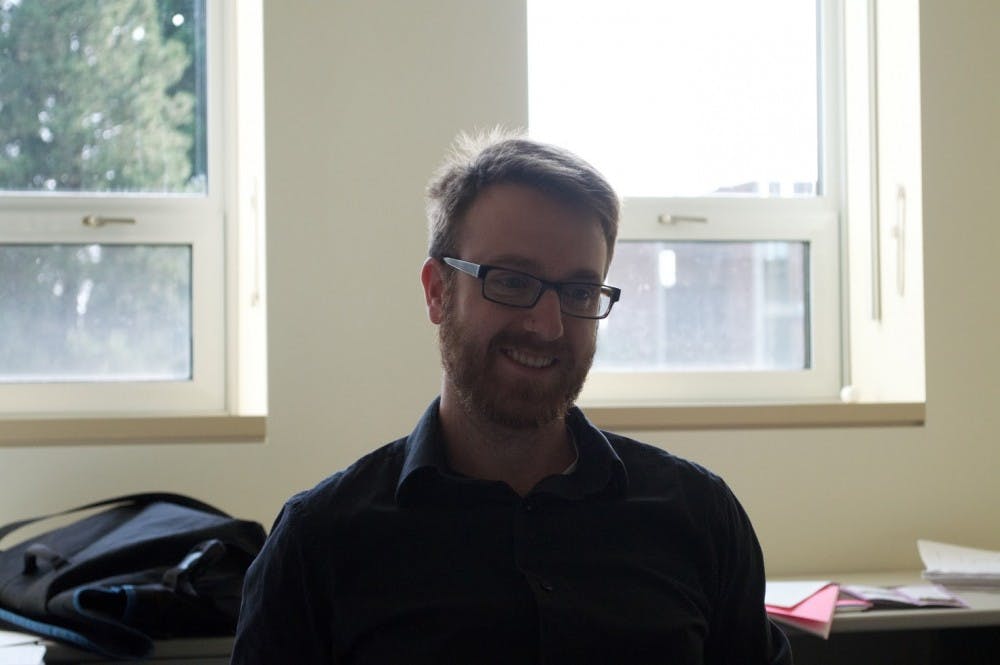
Benjamin Tribelhorn, native to Medford, Ore., obtained his bachelor’s degree at Harvey Mudd College in Claremont, Calif., and his doctorate degree from Oregon State University.
Prior coming to the The Bluff, Tribelhorn taught computer science at Seattle University for three years. As a visiting assistant professor, he will be a part of UP’s engineering faculty for three semesters.
His research encompasses bioinformatics, analyzing DNA and transposable elements such as viruses. He is also interested in robotics and computer vision. Tribelhorn co-founded a robotics and automation company called Revotics (Revolution Robotics), which intersects with his research.
He enjoys board games and playing the violin. He also brews his own beer.
“I chose UP because I wanted to be in a place where it focuses on teaching, as opposed to funding, grant writing and research being the top priority,” Tribelhorn said.



